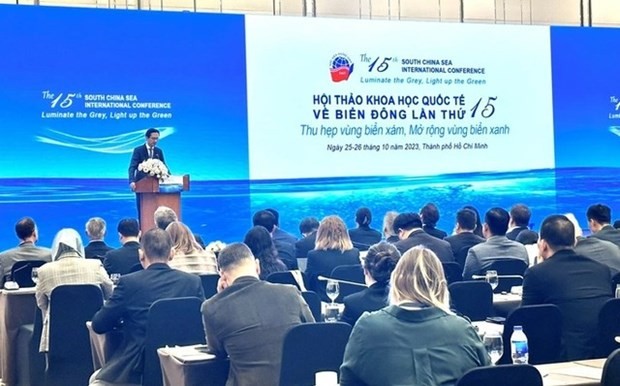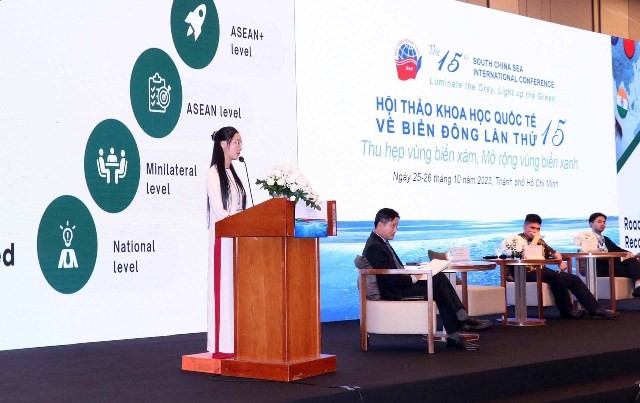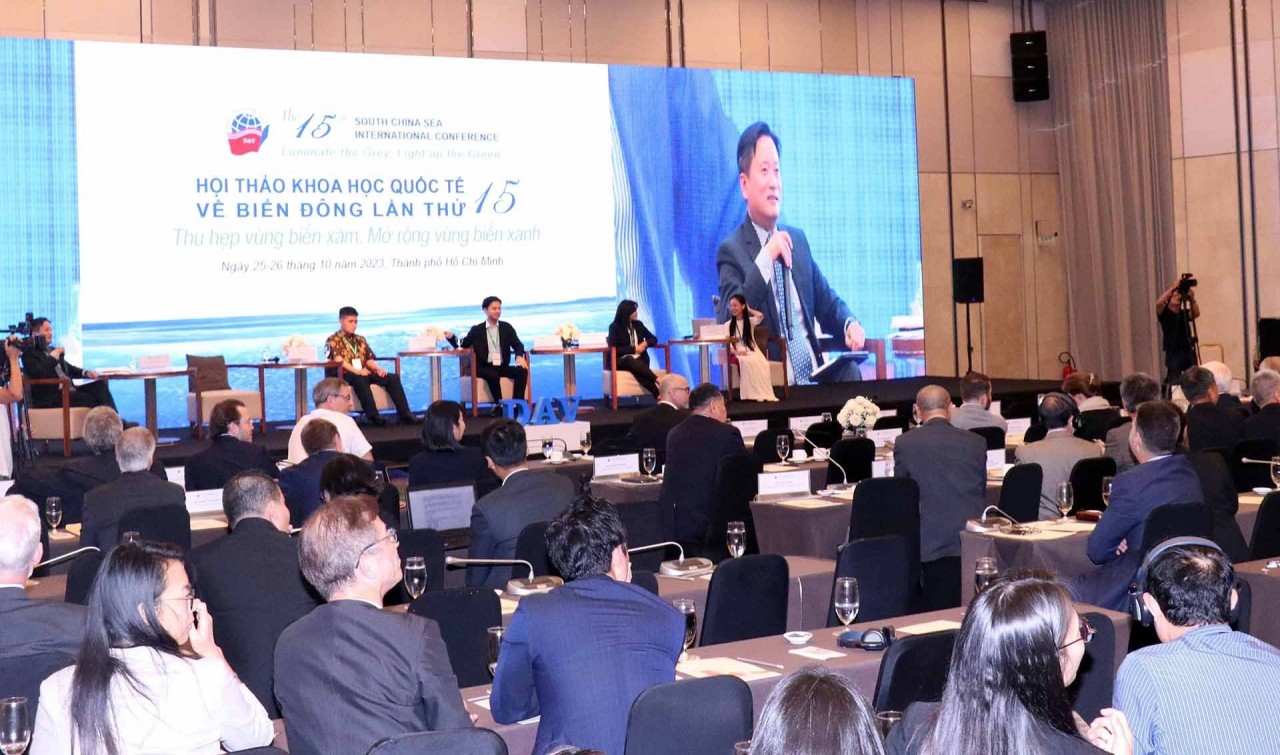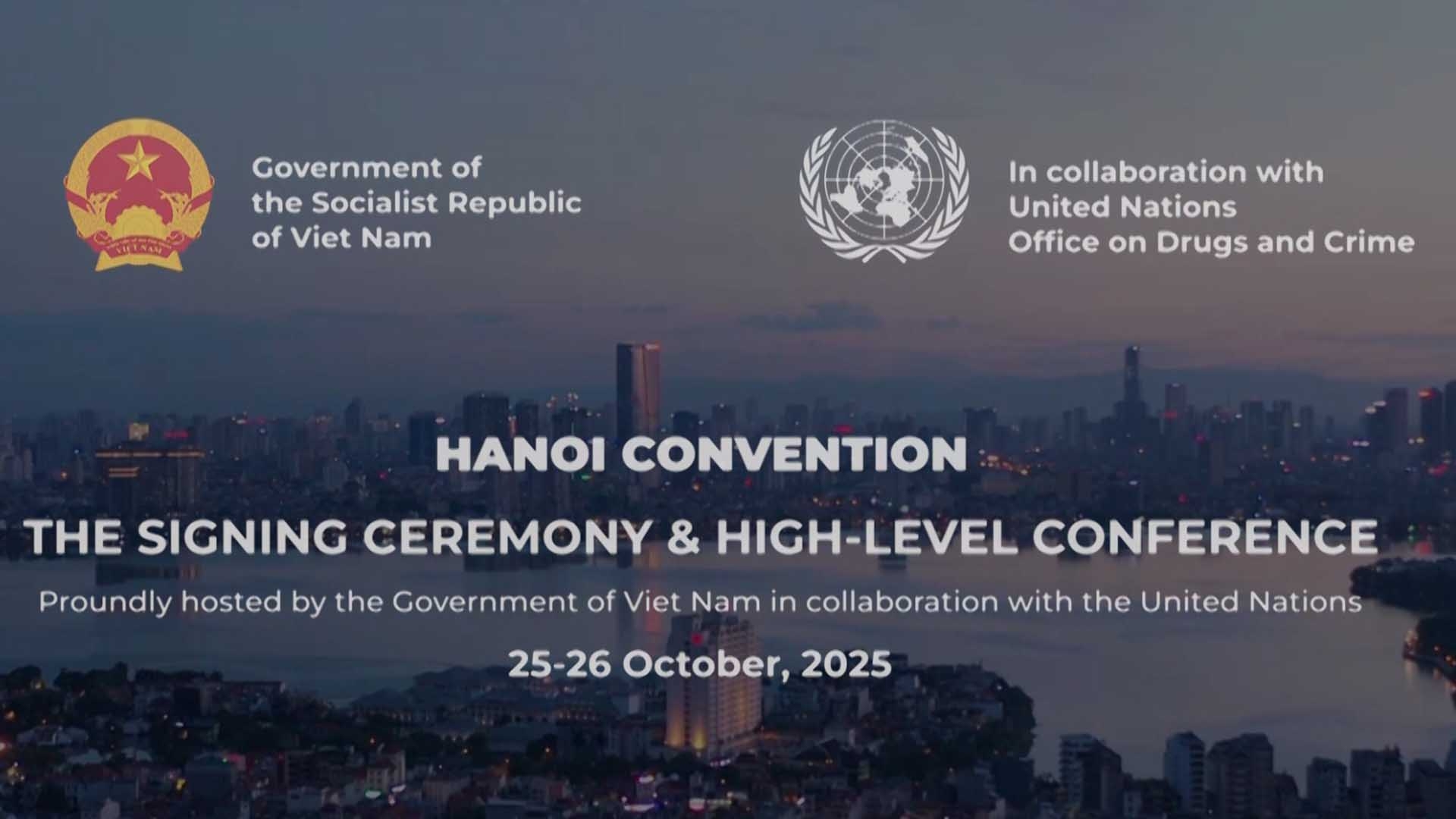
15th East Sea Conference wrapped up in Ho Chi Minh City
Latest
 |
| An overview of the 15th international conference on the East Sea themed "Luminate the Grey, Light up the Green”. (Photo: WVR) |
In Session 5 “The Coast Guard's role in enhancing cooperation in the East Sea”, scholars emphasized the importance of cooperation among Coast Guard forces of regional coastal countries in the East Sea. Most delegates expressed deep concern about "grey zones" activities, with a number of recently unilateral activities by Chinese Coast Guard Ships in the East Sea.
The comments emphasized the importance of Coast Guard diplomacy; expressing belief that small and medium-sized countries should promote cooperation, interaction with each other, act consistently and unanimously based on international law to create collective strength, including recommendations to institutionalize the ASEAN Coast Guard Forum.
Some opinions say that countries in the region need to unify the standards of Coast Guard ships, cooperate and share expertise in law enforcement at sea, protect safety, the marine environment and maintain order at sea, improving the skills and professionalism of the Coast Guard forces.
There is suggestion that the Coast Guards of regional coastal countries can cooperate in building maritime security capacity with major countries inside and outside the region, and develop sets of rules to manage the behavior of the Coast Guards.
At Session 6 “The decisive moment: Traditional energy or renewable energy?”, scholars presented on offshore wind power development, energy conversion and rare earth resource exploitation. Scholars believe that green and sustainable transformation in the exploitation, production and use of energy and marine resources is an irreversible trend.
Countries have to balance the exploitation and conservation of marine ecosystems, contributing to achieving the 7th goal of the United Nations Sustainable Development Goals (SDGs) by 2030 and the COP26 target on emissions net zero by 2050. Most delegates highly appreciated Vietnam's wind power potential with its large exclusive economic zone and huge rare earth resources, ranking second in the world, just behind China.
There are recommendations for synchronously exploiting traditional energy and renewable energy and converting traditional energy into green energy through the use of technology and CO2 storage capabilities. Some delegates shared lessons learned in attracting investment in offshore wind power, saying that it is necessary to have a consistent, reliable institutional framework, reduce administrative procedures, be clear and simple, and update information for people's trust and participation.
In addition, the exploitation of offshore wind power needs to pay attention to the provisions of UNCLOS 1982 related to the 500m safety area and "appropriate measures" to ensure maritime traffic safety.
Besides, some opinions say that the challenge of offshore wind power is not just about maritime traffic safety. The world has not yet fully and comprehensively assessed the challenges created by offshore wind power stations to the ecological environment and animal life at sea and relying on the sea.
There is an opinion that deep-sea resources in areas outside national jurisdiction are the common property of humanity, but the question is who has the right to access these resources, especially in the context of industrial parks. Companies and non-state actors, multinational companies with financial and technological potential are increasingly competing for access.
Another opinion is that deep sea resource exploitation is not only an environmental issue but is also becoming a geopolitical issue in the fierce competition between major countries.
In her online keynote speech, Acting Managing Director of Asia and Pacific of the European External Action Service (EEAS) Paola Pampaloni emphasized: "Multilateralism is still the most effective tool in international relations, beneficial to all, helping countries work together to resolve disputes and achieve common goals."
The EU has vital strategic and economic interests linked to security in maritime space and the prosperity of countries coastal the East Sea. Peace, stability, and cooperation in the East Sea play an essential role for the EU. The EU strongly opposes any actions that increase tensions and undermine the rule-based order,
According to Ms. Pampaloni, the 1982 United Nations Convention on the Law of the Sea (UNCLOS 1982) is a "guiding light" and a "lodestar" to peacefully settle disputes in the region. In addition, the EU supported the negotiation process led by ASEAN towards an effective, practical and legally binding Code of Conduct in the South China Sea (known in Vietnam as the East Sea) (COC) which must respect the interests of third parties and conform with international law, she affirmed.
The EU official also reaffirmed the EU's continued support for effective multilateralism and the central role of the Association of Southeast Asian Nations (ASEAN). The EU has been strengthening cooperation with ASEAN and ASEAN member countries, including Vietnam, in areas such as capacity building, maritime space awareness and increased presence in the sea.
Session 7 on “Essential Infrastructure: New Strategic significance of Technology” focused on assessing the importance and resilience of subsea infrastructure, and provided some recommendations to increase the security of these infrastructures. Many opinions say that every country, whether landlocked or not, depends on undersea infrastructure, including submarine cable systems to connect and transmit information and data.
In addition, there are opinions that the vulnerability of the submarine cable network comes from the fact that this is a hard, immovable infrastructure, along with its location on the seabed, making it difficult to closely monitor and troubleshooting. This makes seabed infrastructure an easy target for attack and sabotage.
To solve this problem, scholars believe that countries need to put seabed infrastructure security as essential infrastructure, with a priority equivalent to economic security and national defense. Additionally, the dependency and location spanning the globe, requires for a cooperative framework at the regional and international levels to safeguard the construction, maintenance and protection of essential infrastructure.
In Session 8 “Voices of the Next Generation”, 5 speakers in the Young Leaders program of the Conference from Australia, Indonesia, Philippines, Vietnam and international Organization Partnerships in Environmental Management for the Seas of East Asia (PEMSEA) discussed the concerns of the younger generation in issues related to the East Sea; at the same time, share some ideas and proposals to achieve a peaceful, stable and prosperous East Sea.
 |
| 15th East Sea Conference wrapped up in Ho Chi Minh City: Representative of Vietnam's young generation speaks at Session 8 "Voice of the next generation". (Source: VNA) |
Young speakers affirmed that in addition to past regional concerns related to maritime disputes between countries, especially acts of making claims that cause insecurity and maritime safety, Southeast Asia in general and the East Sea in particular are facing many other non-traditional threats such as climate change, rising sea levels, depletion of marine resources, and lack of clean energy.
Young speakers said that to jointly achieve peace and stability in the East Sea, countries in the region must strengthen respect for international law, including the 1982 United Nations Convention on the Law of the Sea and the 1982 United Nations Convention on the Law of the Sea. Judgment of the Arbitral Tribunal Annex VII in the East Sea case; Complete the COC soon and especially strengthen cooperation with each other as well as with countries outside the region to jointly resolve issues of common concern such as developing clean energy, promoting marine scientific research, and water prevention. rising seas, protecting marine ecosystems.
 |
| 15th East Sea Conference wrapped up in Ho Chi Minh City: Deputy Director of the Diplomatic Academy of Vietnam Dr. Nguyen Hong Son speaks at the event. (Photo: VNA) |
In his closing speech, Deputy Director of the Diplomatic Academy of Vietnam Dr. Nguyen Hong Son said the conference has highlighted the immense potential of the seas and oceans, and proposed various innovative cooperation mechanisms and ideas to realise their potential.
He highlighted the need to maintain a peaceful environment, enhance dialogue and cooperation to strengthen the effectiveness of international law and multilateral cooperation mechanisms, and reduce unilateral actions, thus "luminating the grey."
In particular, Dr. Nguyen Hung Son emphasized the need to look towards the future, building a team of experts and young regional leaders who are interested, knowledgeable and have the habit of dialogue and cooperation.
Dr. Son also called for building a team of experts and young leaders in the region who are interested in, understand and have a habit of dialogue and cooperation.









